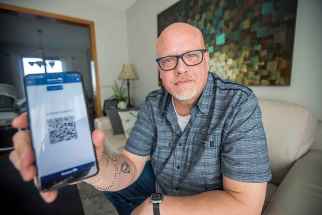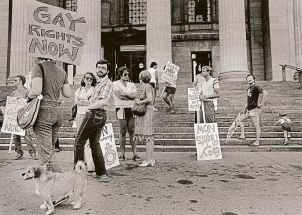Facts prevail for now-vaccinated trio Solid information, family, co-workers carry the day in persuading hesitant, and firmly opposed Manitobans to roll up their sleeves for COVID shots
Read this article for free:
or
Already have an account? Log in here »
To continue reading, please subscribe:
Monthly Digital Subscription
$0 for the first 4 weeks*
- Enjoy unlimited reading on winnipegfreepress.com
- Read the E-Edition, our digital replica newspaper
- Access News Break, our award-winning app
- Play interactive puzzles
*No charge for 4 weeks then price increases to the regular rate of $19.00 plus GST every four weeks. Offer available to new and qualified returning subscribers only. Cancel any time.
Monthly Digital Subscription
$4.75/week*
- Enjoy unlimited reading on winnipegfreepress.com
- Read the E-Edition, our digital replica newspaper
- Access News Break, our award-winning app
- Play interactive puzzles
*Billed as $19 plus GST every four weeks. Cancel any time.
To continue reading, please subscribe:
Add Free Press access to your Brandon Sun subscription for only an additional
$1 for the first 4 weeks*
*Your next subscription payment will increase by $1.00 and you will be charged $16.99 plus GST for four weeks. After four weeks, your payment will increase to $23.99 plus GST every four weeks.
Read unlimited articles for free today:
or
Already have an account? Log in here »
Hey there, time traveller!
This article was published 05/10/2021 (1526 days ago), so information in it may no longer be current.
Right up until the day he set up his first-dose appointment, Jason Lerato thought he’d never get vaccinated against COVID-19.
While his sister-in-law was sitting in meetings with chief provincial public health officer Dr. Brent Roussin, he was maintaining a popular anti-vax Twitter account with about 6,000 followers.
It was where Lerato, 47, would be “extremely vocal” about his views about various vaccines, sharing online sources he believed supported his claims.
“My change of mind wasn’t so I could go to restaurants or concerts, I couldn’t care less about that… I decided to do it for me and my family around me.”
– Jason Lerato
“If there was a flag to carry about anti-vax, that was me, for 20-plus years,” the trucking company dispatcher says.
About a decade ago, Lerato opted to take both his kids — now age 20 and 22 — out of their school HPV vaccination program. And when the pandemic became a reality, he wholeheartedly believed some of the conspiracy theories about the vaccines that spread around.
Pastor delivers pro-vaccine message with love
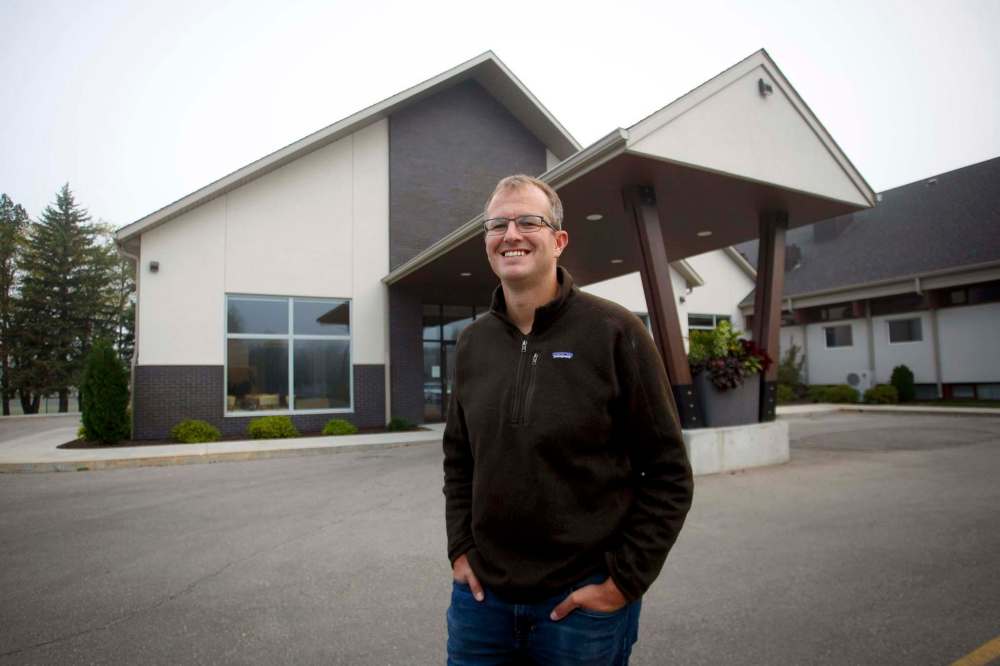
Posted:
First, his message was "stay home." Then, "get vaccinated." Now, a year-and-a-half into a pandemic that has splintered relationships on the basis of vaccination status, a Steinbach pastor has switched to a nuanced conversation.
“That was completely my thinking: this is not real, this is a man-made thing, this is a plot,” he says.
Lerato is one of three Manitobans willing to talk about their transformation from being hesitant or fully anti-vax in the initial stages of the pandemic to standing now with the 87.2 per cent of eligible residents who’ve received at least one dose.
In Lerato’s case, it was the kind and pragmatic approach that turned the tide. In August, his wife’s sister and her husband — both work in health care — answered every question he had about the virus, the vaccine and the ideas he had been consuming and sharing online.
“Even seconds before I sat down and started small talk with them, nobody could convince me that getting the vaccine was the right thing,” he says.
After a three-hour conversation, he went home to his wife — who got vaccinated as soon as she was able — and was met with tears of joy when he told her he had booked an appointment for his first dose two days later.
He was fully immunized by Sept. 19 and didn’t have to deal with any side-effects.
“My change of mind wasn’t so I could go to restaurants or concerts, I couldn’t care less about that… I decided to do it for me and my family around me,” he says.
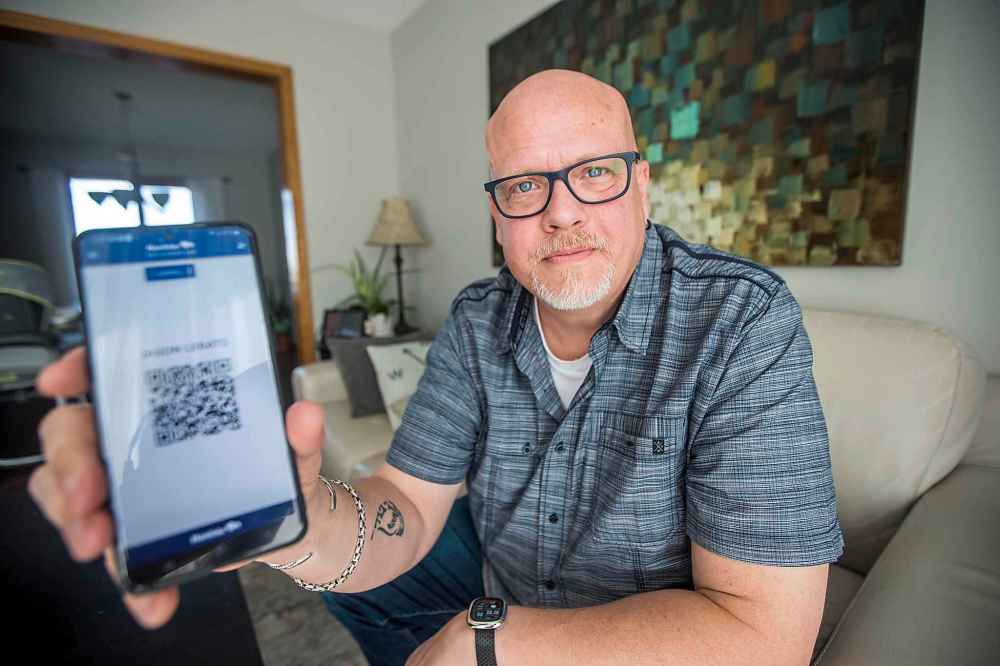
He decided to speak openly about his experiences because, he says, he has nothing to hide, and he’s seen how powerful being open about getting vaccinated can be. His wife’s son and a friend, both of whom had been hesitant to get the vaccine, booked their appointments after watching his ideological shift.
The Twitter account Lerato once spent “all day, every day” moderating is long gone, and with it, a weight’s been lifted off his shoulders.
“I regret it because I probably helped, in the wrong sense, a lot of people to be convinced that the government is out to kill them and vaccines are going to destroy your life, and I regret that,” he says.
“That’s why I just deleted it and figured fresh start, done. It’s been a huge peace in my mind and a huge peace in my life, getting rid of that side of my life, because it’s consuming. It’s extremely consuming.”
●●●
Rebecca Harder is the fifth of 10 children of parents she describes as “anti-doctor and anti-medical establishment.” She grew up in the Rural Municipality of Stanley and lived in Winkler, the two least-vaccinated health districts in the province, before moving to Manitou last year.
Harder, 33, lives with cystic fibrosis. Regardless, her parents refused to vaccinate their children and instead used essential oils and supplements in an attempt to keep their kids healthy.
Despite her health conditions, she grew up into a similar mindset as her parents, one she was forced to reckon with when a deadly virus that affects the respiratory system, much like cystic fibrosis does, arrived in Manitoba.
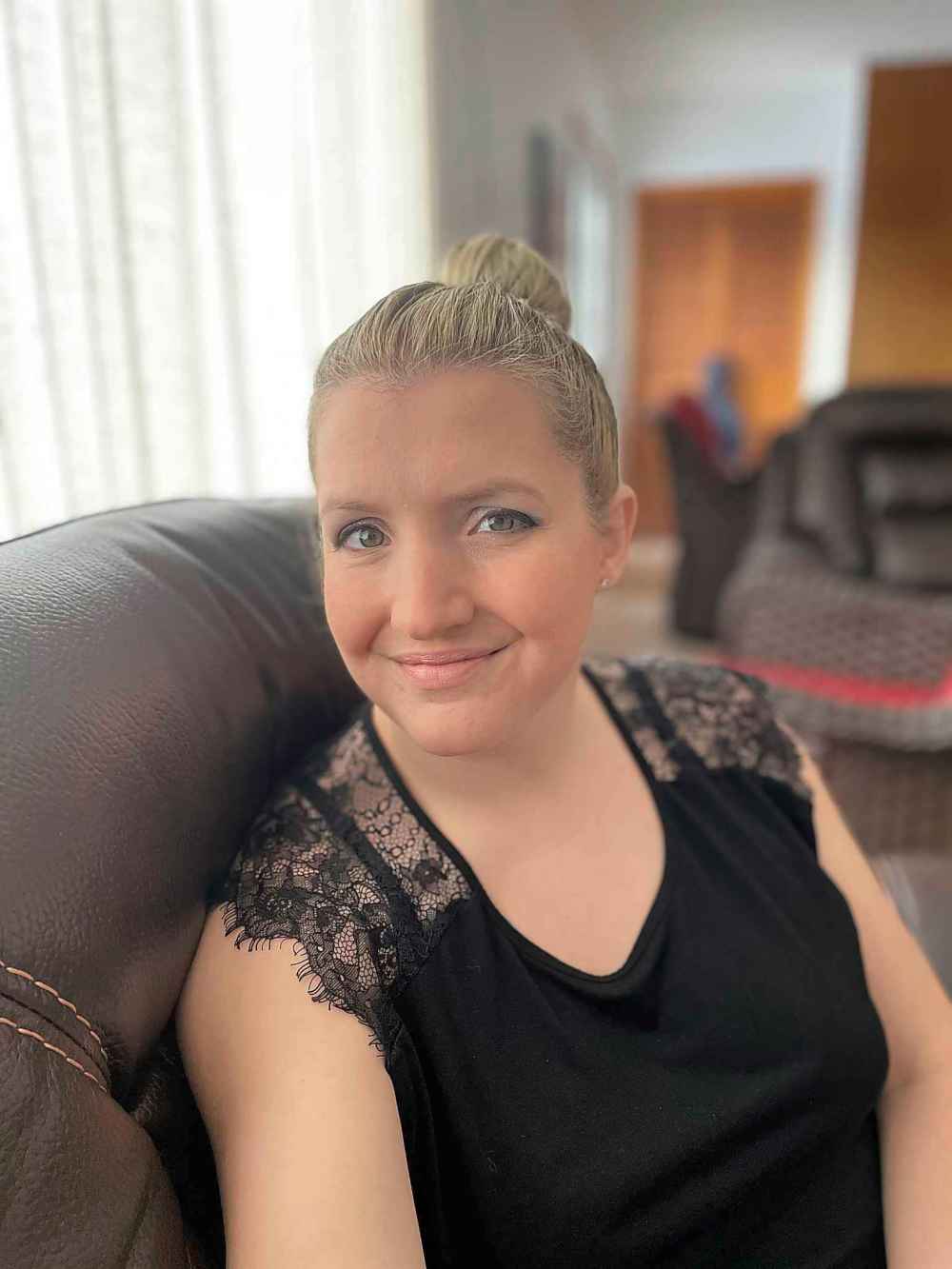
“I would say my anti-vax beliefs were very, very solid, until COVID happened,” the stay-at-home mom says.
It was then when she began paying attention to the number of people with COVID-19 landing in hospital beds and realized if she was infected, she would almost certainly have very severe side-effects based on her underlying health issues.
Information and the support of a family member who was choosing to get vaccinated got her to where she decided it was time to get the shot.
“It was nice talking to someone who had that same background but was also going through the same thought process,” she says.
Harder got her COVID-19 doses in May and June. She experienced some of the typical side- effects, including fever, chills and exhaustion, but quickly recovered.
Most of her family remains strongly anti-vaccine, and Harder kept her vaccination status a secret for months.
“I don’t think I’ve told anyone to get vaccinated, because I remember being an anti-vaxxer, and that never really resonated with me, somebody telling me what to do,” she says. “But what did help was people talking about data, the facts. If I would say something that was misinformation, being told, ‘No, that’s not correct, here’s the study, here’s what’s actually true.’”
“… what did help was people talking about data, the facts. If I would say something that was misinformation, being told, ‘No, that’s not correct, here’s the study, here’s what’s actually true.’ ”
– Rebecca Harder
It hasn’t been an entirely smooth experience — she says to be openly vaccinated in Stanley and Winkler, where most of her loved ones still live, “can range from uncomfortable to terrifying.”
Her voice breaks and she begins to cry, recounting someone close to her who lives in Stanley, was open about getting vaccinated and received death threats.
“She regrets telling anybody that she got vaccinated,” Harder says through tears. “She doesn’t regret getting vaccinated.”
Harder decided to speak openly because the kind of misinformation that’s now fuelling the anti-vax movement had a damaging effect on her life even pre-COVID, and the possibility that someone will read her story and decide to get vaccinated made the decision a simple one.
“I just really hate misinformation, and I know people I love are making decisions based on it,” she says. “On my side of the family, no one has gotten COVID yet, and I know it’s just a matter of time.”
●●●
Howie Eugenio never considered himself an anti-vaxxer. His hesitancy stemmed from a desire to wait to see whether there were any longer-term effects. He so rarely got sick he didn’t consider waiting to be an issue.
Eventually, that hesitancy grew into a message he wanted to share. The 37-year-old personal trainer and massage therapist was disappointed that messaging from the province didn’t focus on something he thought was important to recognize: treating underlying conditions first.
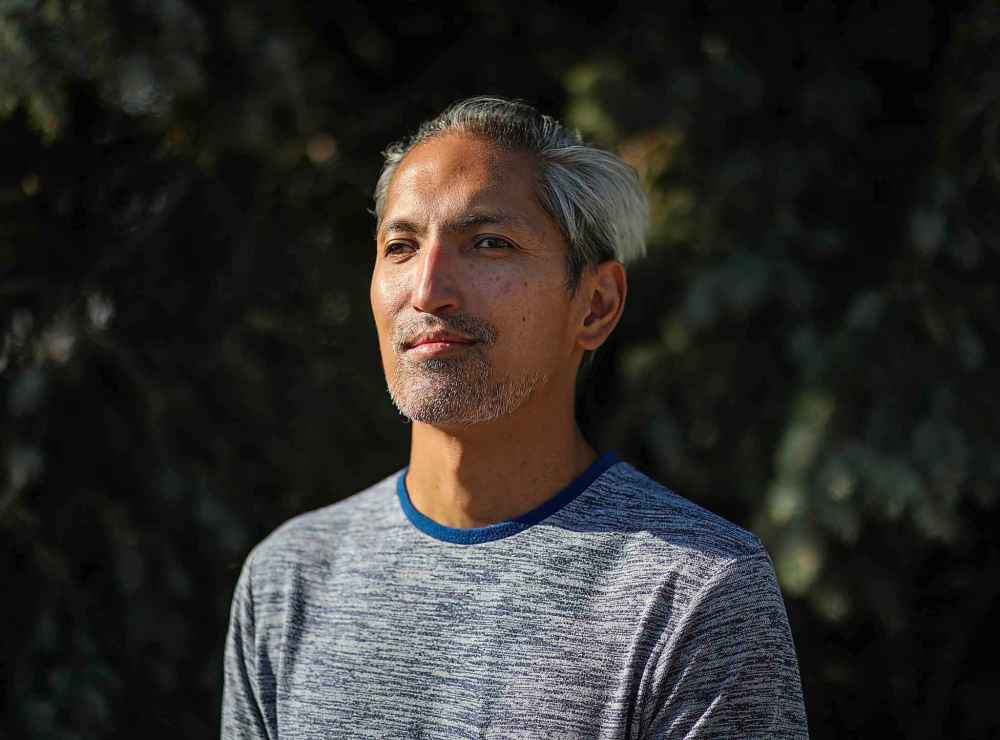
“My big stance was, shouldn’t we be teaching people how to live healthier, to be healthier? Especially considering a lot of the younger people being affected, they have comorbidities — obesity, diabetes and whatnot — so to me, it made logical sense that if we teach the people to be healthier, that’s one way to combat things,” he says.
“But there was none of that talk. So this was kind of a way for me to bring awareness to what we had to do in terms of our health.”
Then, as the province’s vaccine lottery and immunization-based restrictions came into play, Eugenio says he found himself growing distrustful of the province’s intentions behind vaccine promotion.
He had a conversation with co-workers, all of whom are vaccinated, who explained their reasons for getting their shots.
“Just hearing their side, reasons why they were getting it, some of that was kind of getting lost in all the stuff I was looking at,” he says.
“It was definitely a struggle to come to that point to get it… I was kind of so wrapped up into trying to prove to people why you shouldn’t get it, whereas I was failing to look at reasons why to get it.”
– Howie Eugenio
That was a pivotal moment for Eugenio, who had until then been growing uncomfortable with the divide the issue was causing among his peers. He found that his original message wasn’t being heard because people would immediately disregard it after learning he wasn’t vaccinated, and restrictions meant he would miss out on important things in his life, such as being able to play league basketball or be allowed inside his daughter’s preschool.
He got his first dose last month and is eligible to get his second this week.
He remains supportive of both sides of the argument and critical of coercive methods to get people vaccinated, but has found his mindset has shifted away from where it originally was.
“It was definitely a struggle to come to that point to get it… I was kind of so wrapped up into trying to prove to people why you shouldn’t get it, whereas I was failing to look at reasons why to get it,” he says.
malak.abas@freepress.mb.ca
Twitter: malakabas_

Our newsroom depends on a growing audience of readers to power our journalism. If you are not a paid reader, please consider becoming a subscriber.
Our newsroom depends on its audience of readers to power our journalism. Thank you for your support.



